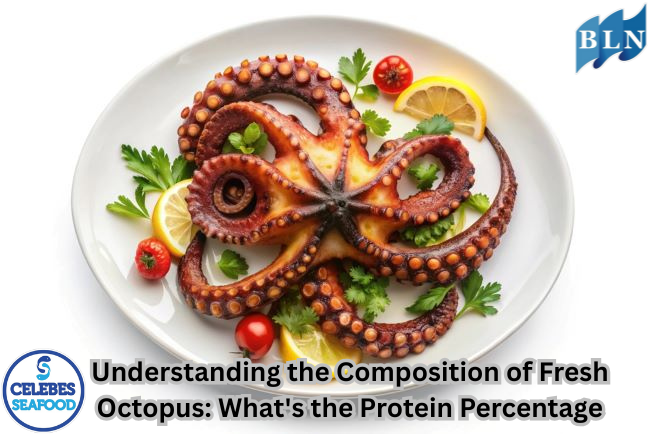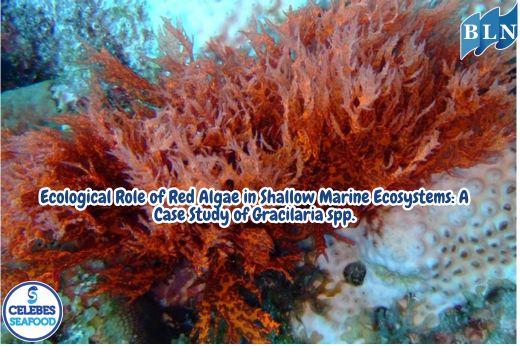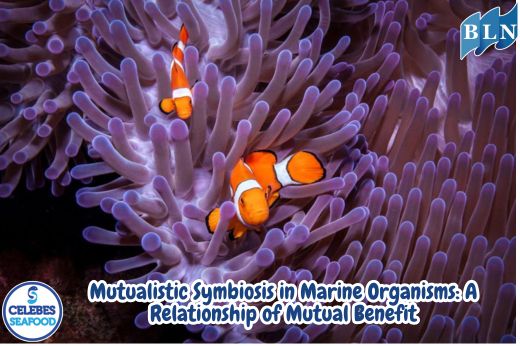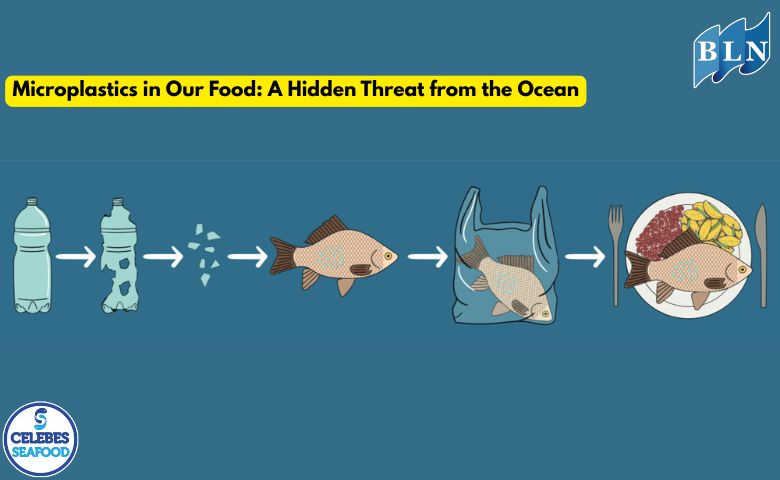Understanding the Composition of Fresh Octopus: What's the Protein Percentage
By. Tri - 08 Aug 2025
lautnusantara.com_ Octopus, a beloved seafood, is not only delicious but also packed with nutrients. One of its most notable nutrients is protein, a key component for a healthy body. However, many people don't realize that the nutritional content of octopus—including its protein—differs significantly between fresh and cooked octopus.
Fresh octopus, straight from the ocean, has a very high water content. Water makes up about 80% of the octopus's total weight. This high water content is the primary factor influencing the percentage of other nutrients.
Based on nutritional data, in every 100 grams of fresh octopus, the protein content is approximately 14 to 15 grams. This means that about 14-15% of the fresh octopus's weight is protein.
To better understand, here is the average nutritional breakdown for 100 grams of fresh octopus:
- Water: Approximately 80 grams (80%)
- Protein: Approximately 14-15 grams (14-15%)
- Fat: Approximately 1 gram (1%)
- Carbohydrates: Approximately 2-3 grams (2-3%)
The Difference Between Fresh and Cooked Octopus
You might be wondering why cooked octopus is often said to have a higher protein content. The answer is simple: the cooking process.
When octopus is boiled, steamed, or grilled, a significant amount of its water evaporates. This evaporation causes the octopus to shrink, and the remaining nutrients become more concentrated. Therefore, in 100 grams of cooked octopus, the protein content can jump to 25-30 grams.
This doesn't mean that cooked octopus has more total protein, but rather that the proportion of nutrients in every 100 grams becomes denser. In other words, you get more protein per bite.
Even with its lower protein percentage, fresh octopus remains a very healthy food choice. It is also rich in essential minerals like iron, calcium, and phosphorus, as well as Vitamin B12, which is vital for red blood cell formation and nerve function.
So, whether served fresh in dishes like sashimi or cooked into other delicious meals, octopus continues to offer remarkable nutritional benefits for your body.
the nutritional composition of octopus, especially its protein content, changes significantly from its fresh to its cooked state. While fresh octopus is roughly 80% water and contains about 14-15% protein by weight, the cooking process evaporates this water. This concentration effect means that cooked octopus offers a much higher protein density, with about 25-30 grams of protein per 100 grams. Both forms are excellent sources of protein and other vital nutrients, but it's important to understand this distinction for dietary planning.
If you are interested in our Coral Trout Fillet Skin On, CORAL TROUT WGG WHOLE GILLED GUTTED, TOMATO COD WHOLE GILLED GUTTED please do not hesitate to contact us through email and/or whatsapp.







.jpg)